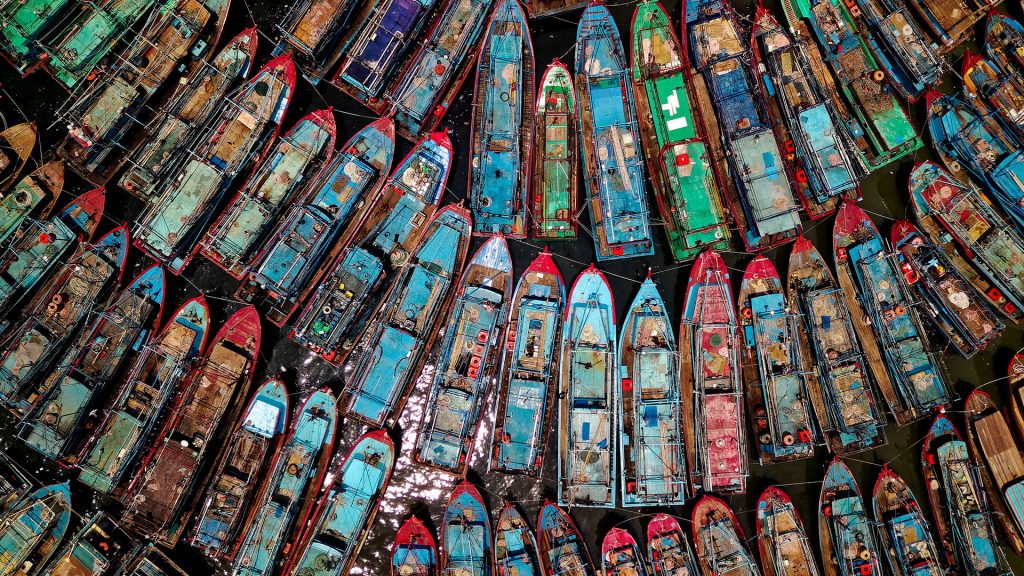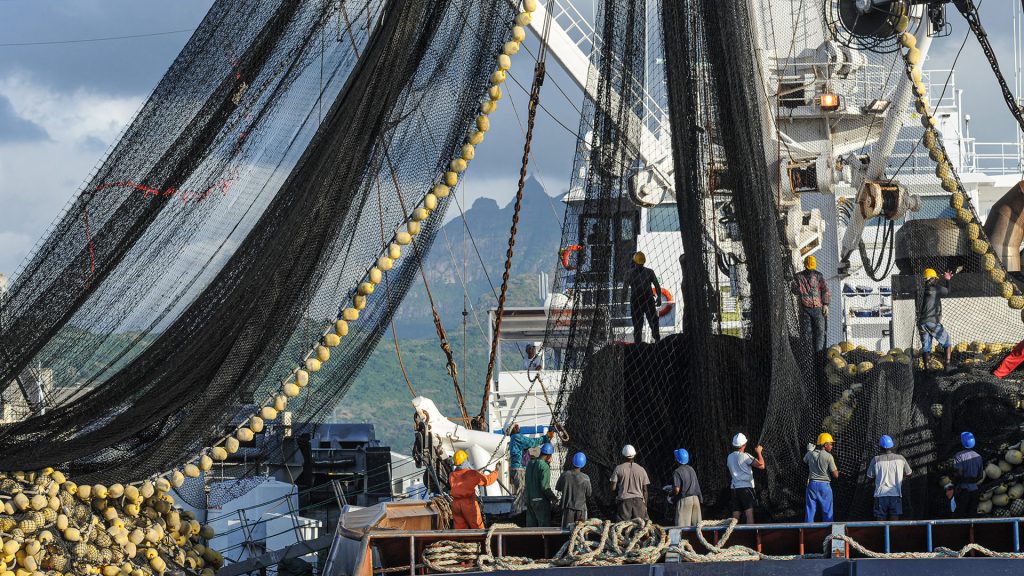The health of the earth’s ocean heavily relies on the thriving presence of aquaculture that inhabits within. As the population of the human race continues to steadily rise, the threat of overfishing is now developing into a crisis, disrupting the delicate balance of nature and destabilising the over-arching cycles of life.
There are so called “dark fishing fleets” all over the world, operating on the low but scooping up a high level of valuable oceanic resources. The underlying problem is that it is perfectly legal to fish on international waters, and unfortunately the fish knows no boundaries. This results in loop holes and grey areas that can quite easily be exploited and taken advantage of by both domestic and foreign fishing vessels. One study claims that there could be as many as 17,000 distant water fishing fleets spread out around the world from China alone, which is understandably a distressing statistic even if the tru figure was only a fraction of the said number.
The current laws and enforcement measures are simply not working, and failing to keep the ocean and its aquaculture safe. There has been wide-spread falsification of documentation, and loopholes around laws that results in a large amount of illegal fishing that takes place on a regular basis. The crucial question to ask here is, how can we make the laws that are in place more enforceable and ensure that there is a systematic, undisputed way to impose evidence-backed accountability?
Whilst Ocean Blocks cannot promise to solve all the underlying problems immediately, it is a huge step in the right direction towards a much improved common consensus between governing authorities around the world. The most difficult barrier to overcome would be establishing such decentralised consensus and coming to an agreement on its implementation initially. Ocean Blocks, when in full action, can tackle and mitigate the following problems in an effective manner:
- Falsification of documentation would be extremely difficult as the originals would reside on an immutable ledger-based Blockchain system
- Provide a single source of truth that isn’t governed or controlled by any single country or authority, but rather, governed as a collective responsibility
- Quota enforcement can be streamlined through a blockchain-based digital process
- Geographical enforcement can be facilitated semi-automatically through a combination of GPS, satellite and other sensors available to Ocean Blocks




